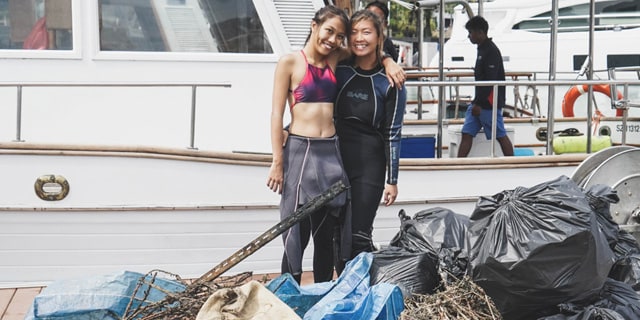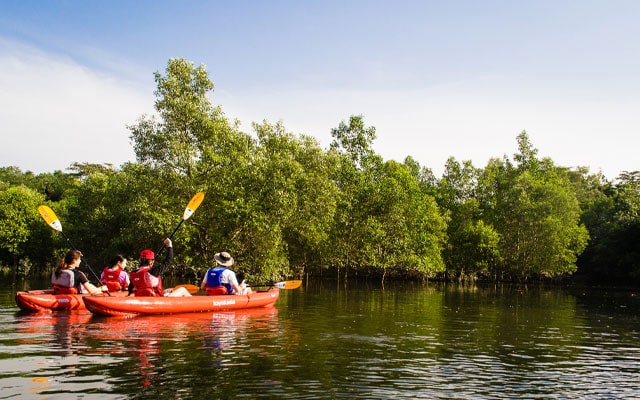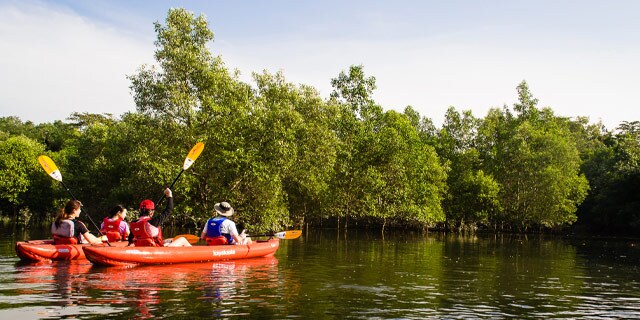Les (Village) is More: Sustainability Initiative in Bali
Les (Village) is More: Sustainability Initiative in Bali
Sustainability is at the core of everything we do at Temasek. This article is part of Generational Investing, an ongoing series featuring individuals, organisations and activities that create a better world for future generations, through creativity, innovation and sustainable practices.
In this article, Jensen Loke, our Associate Director of Digital Technology, shares how he explored Bali off the beaten track by participating in reef rehabilitation, plastic recycling and salt farming at Les Village.
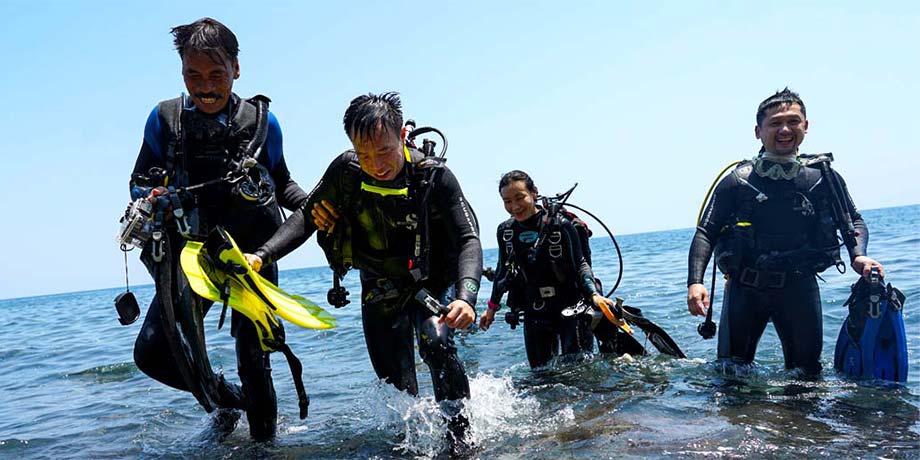
In October 2019, a group of us from Temasek travelled to Les Village (Les in short), a seaside community in the northern part of Bali, Indonesia. This was part of Project GO, a series of ecology-focused staff initiatives spearheaded by our very own Sustainability and Stewardship department.
Not Your Typical Trip to Bali
I’ve been to Bali several times, but what drew me to this trip was the opportunity to do something very different: to learn how the locals are doing their part to rebuild the environment, and to do it alongside them.
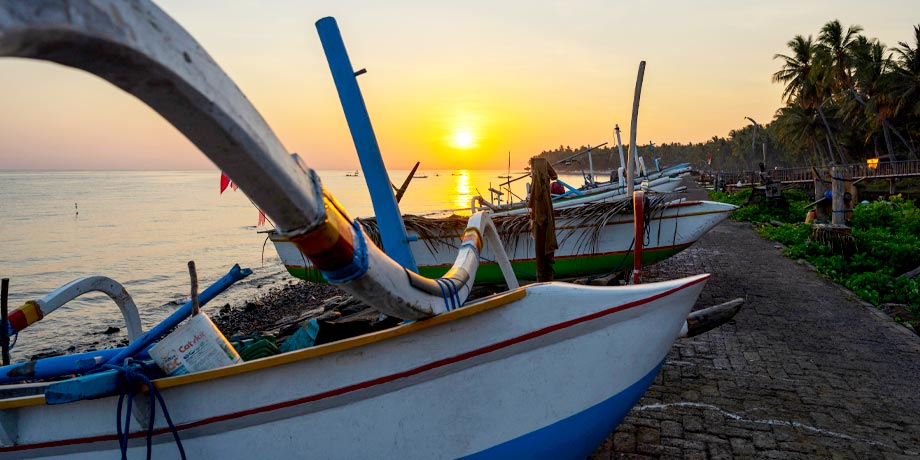
The sun rising over the ocean on a beach at Les Village, a seaside community located along the northern coast of Bali, Indonesia.
Les is a three-hour drive from Bali’s capital, Denpasar. In Les, we spent time with the villagers through activities such as coral reef rehabilitation, plastics recycling and salt farming. We enjoyed authentic Balinese cuisine, and visited traditional temples and the local waterfall.
The Coral Reef Rehabilitation
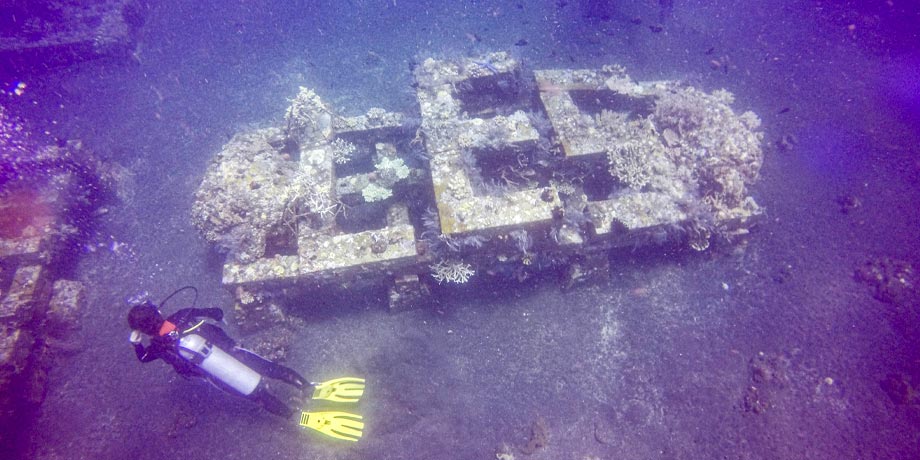
Reef garden outpost in Les Village, Bali, Indonesia. (Photo: Jensen Loke)
On the second day of our trip, we learnt about the history of the reef rehabilitation programme, and that the fish and coral gathered here were sold commercially — the main livelihood for most of the locals.
Prior to the programme being implemented, these (free-diving) fishermen relied on potassium cyanide as their main fishing method. Over time, the reefs were poisoned and the natural habitat for marine life was severely damaged. The locals said they saw a decrease in ornamental fishes near the coast and had to dive further and deeper in order to sustain their livelihoods.
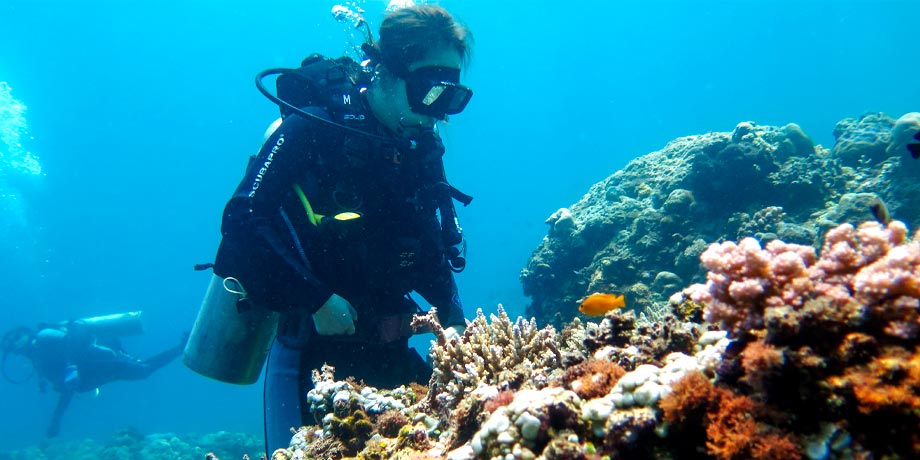
Diving to collect broken reef fragments.
Since it launched in 2009, the reef rehabilitation programme has seen the villagers, local government, foreign researchers and non-profit organisation like Sea Communities pitching in to regrow the reefs and take care of the surrounding marine life.
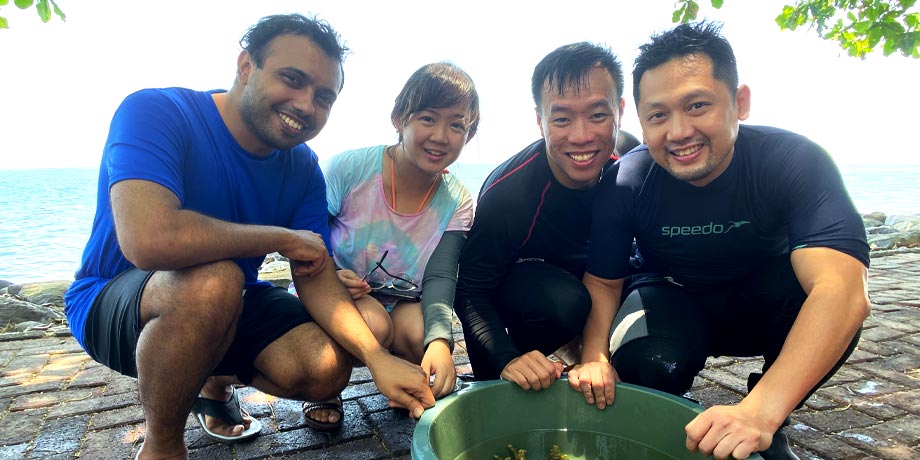
As part of the programme, members of the Technology team (from left to right) Sheshbabu Chinnakonda, Mook Chaichirawiwat, Jensen Loke and Alex Tan dived to collect coral fragments for replanting. (Photo: Jensen Loke)
We took part in a few dives with the locals that involved the gathering of reef fragments and replanting them. During the dives, I witnessed first-hand how this initiative, which began more than 10 years ago, is now home to vibrant marine life close to the coast.
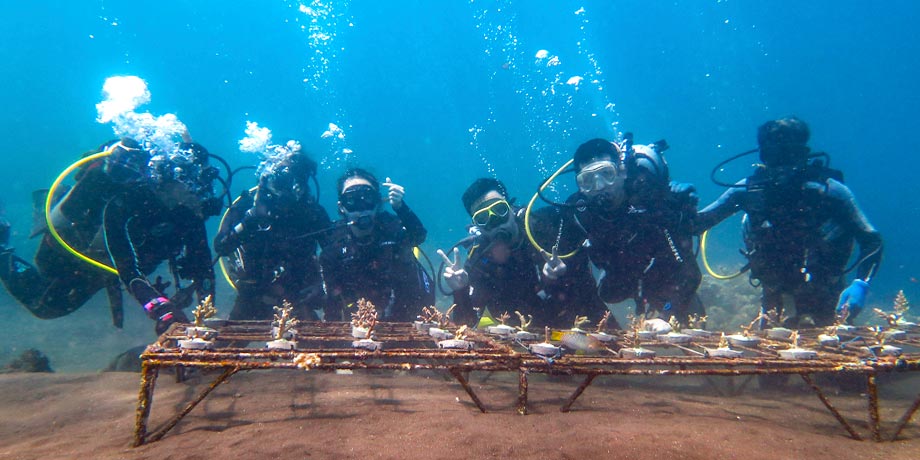
A group photo of the divers with the reef fragments planted on stone mesh.
There were so many fish that some even “attacked” my GoPro!
Learning about Plastic Recycling
After the dive, we were brought to a local recycling facility and learnt about the different types of recyclable plastics.
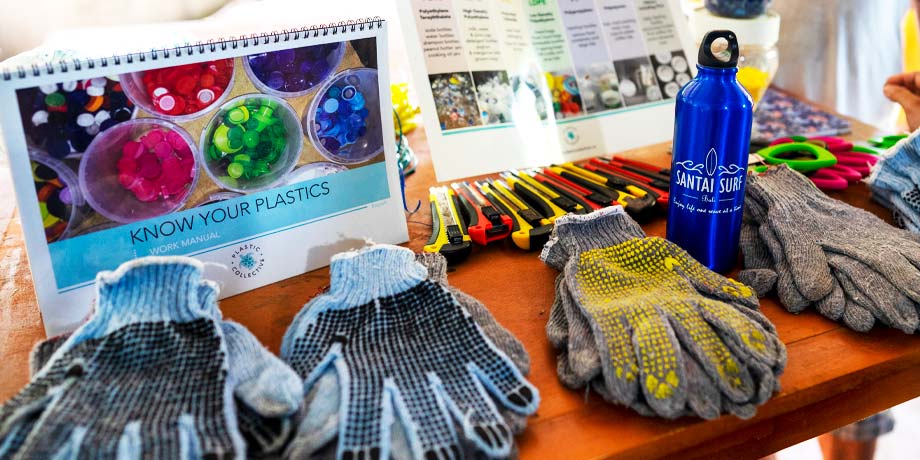
Did you know that there are many types of plastic, which each require a different method of recycling?
Polyethylene terephthalate (PET) is one type of plastic that the villagers are focused on recycling. It’s primarily used for food and drink packaging, due to its ability to prevent oxygen from getting in and spoiling the product inside. We got involved in the preparation of sorted waste plastics, cutting plastic cups and removing labels from plastic bottles.
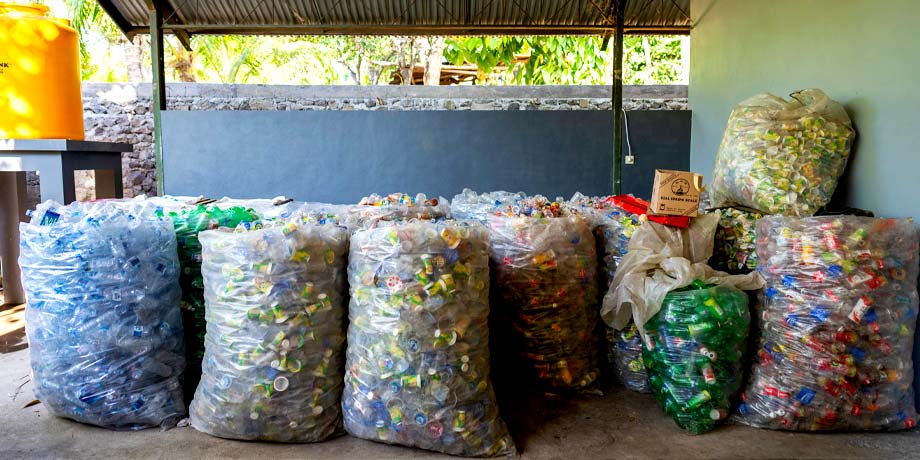
Plastics collected from various villages and sorted here, are now waiting to be processed.
The business of recycling plastics is not as straightforward as one might think. Viable business models might not exist for the types of plastic that are available for recycling. Apart from what products to make with recycled plastic, the villagers also had to consider the cost required to produce pellets, the initial machinery investments, and whether there was demand for the recycled-plastic products. This entrepreneurial mindset left us feeling inspired to do more about our own plastic waste.
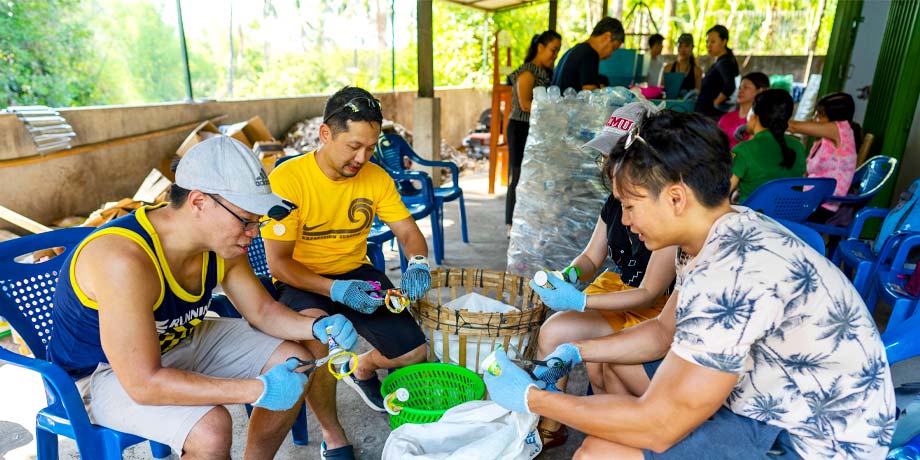
Removing parts of the plastic that cannot be processed.
Some of us became really engrossed in the production process and worked together like cogs in a well-oiled machine. The end result? We soon had recycled plastic shreds, pellets and strings “printed” and ready for use as “raw material”!
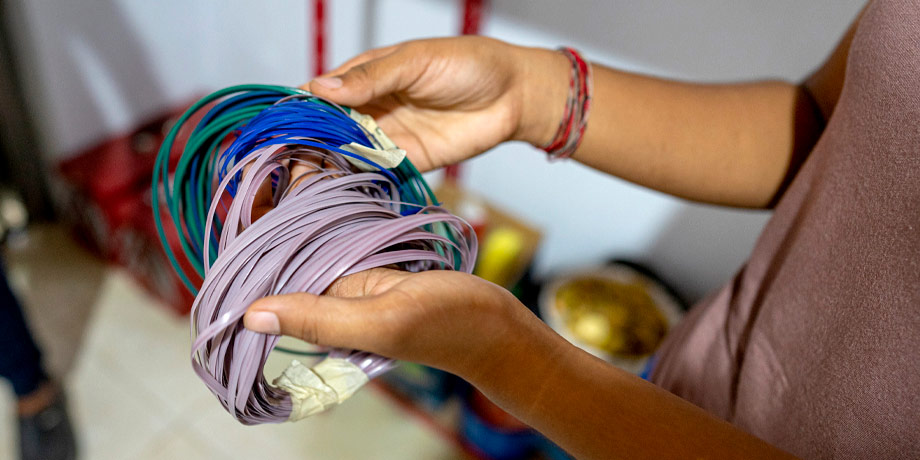
Strings “printed” from recycled plastics.
Salt Farming While Catching the Sunrise
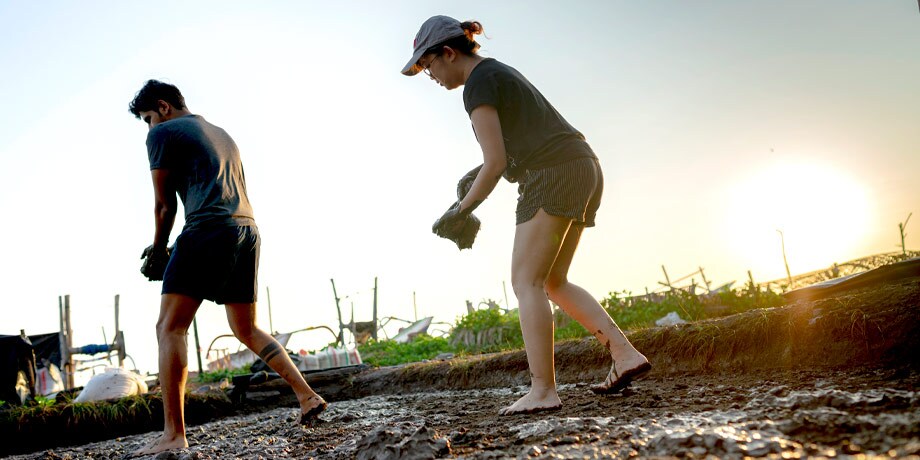
Sunrise on the third day saw the team on the beach, taking part in an unconventional early morning ritual: salt farming.
On another morning, we joined the salt farmers at 6am to try our hand at the salt manufacturing process. We got ourselves awfully muddy, but had a lot of fun with the locals gathering sea water, saturating soil with it, filtering the mixture and later, raking salt from the drying fields.
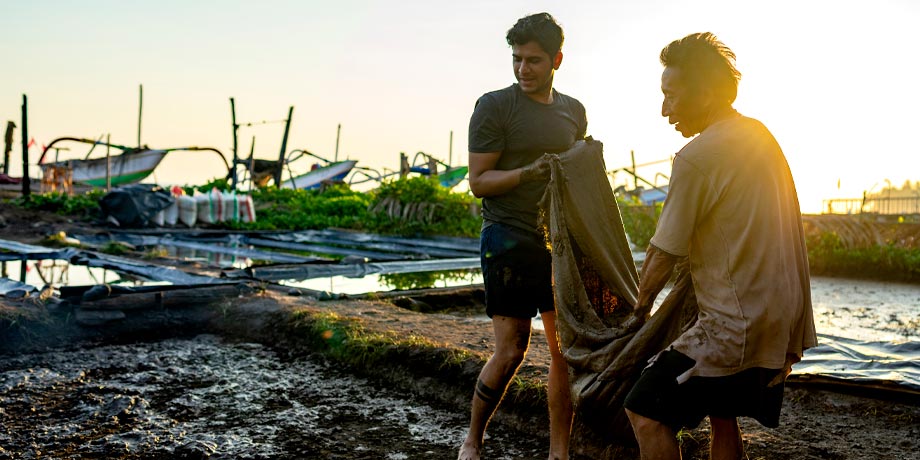
Working with one of the salt farmers to spread mud with salt water from the filtration pans.
A natural local produce, salt has been a key economic driver in this village — these salt farming methods have been practised since the village’s earliest days.
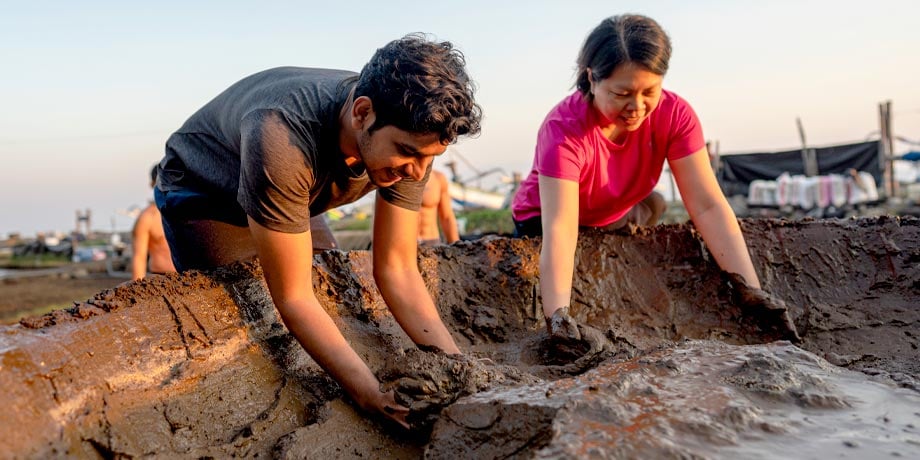
Many of us felt like we had better skin after the entire experience!
The table salt produced here has a distinct flavour in comparison to conventional factory manufactured versions — it possesses a sweet aftertaste due to the use of bamboo trunk in its production. After harvesting salt from drying fields, we took a turn sorting, mixing the salt with natural flavours, and bottling.
The salt is also used in scented bath salt production, which we also took part in.
Being a digital native, it is easy to imagine how modern technology could help make this process more efficient. But this is a local tradition that will help ensure the survival of future generations, and the farmers we worked with went about their work cheerfully, with big smiles on their faces. This reminded us of the simplicity of life and to appreciate the everyday things — right down to what we put on the table.
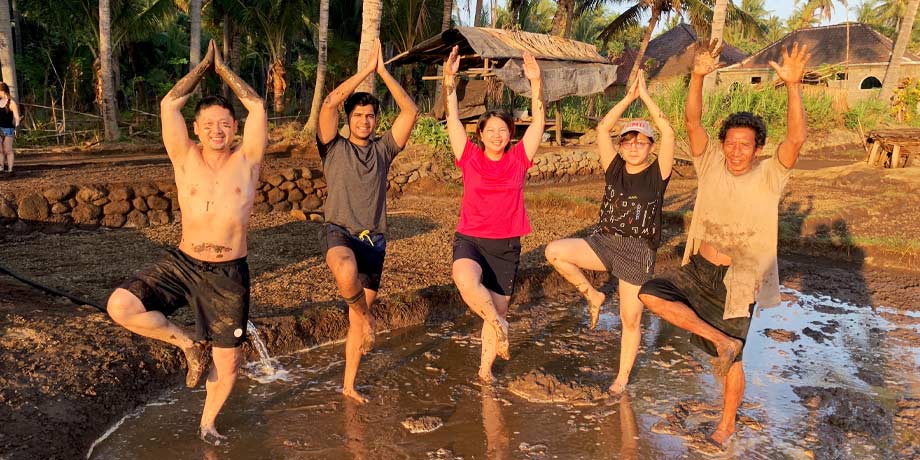
Aftermath of spreading mud and having fun with the villagers! (Photo: Jensen Loke)
Sharing My Views
Together, we can do a lot to make a difference to our community and environment. Small efforts can go a long way over time. It was inspirational and encouraging to see the reef garden teeming with life, with fish and marine animals flocking to it.
We have much to learn from the locals, and were glad for the opportunity to experience and lend a hand in preserving their environment, culture and heritage. Definitely something different from your typical trip to Bali.
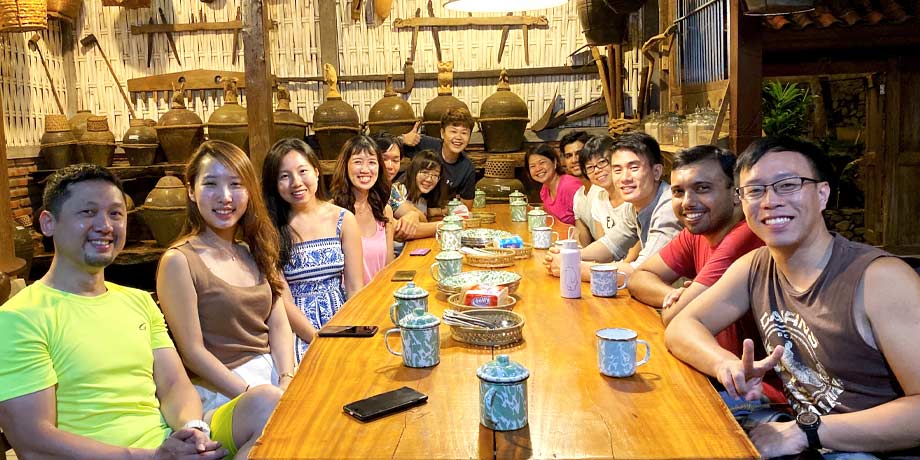
Cheers to a great trip! Here’s a picture of the entire crew.
I now see so many opportunities for us to play a part, by driving greater awareness, lending our skills to improve recycling efforts and building new, relevant business models.
So, for any diving enthusiasts or aspiring conservationists out there, I would encourage you to take the first step, sign up for an alternative holiday experience like this, and become more engaged with our regional communities.
This article was first published on Temasek Root Access.

